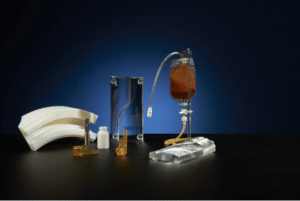
Since the passage of the Affordable Care Act, the medical industry has undergone massive changes, the extent of which can hardly be summed up in one blog post. One sure consequence, however, has been higher demand for specialty plastics in medical equipment and devices.
We’re Reading Plastic Machining & Fabrication, a provider of plastic machining for an array of government and private industry clients. As experts in plastic machining for more than three decades, we’ll explain why tidal shifts in healthcare laws have made specialty plastics essential to medical, pharmaceutical and biotechnology components.
The effects of the Affordable Care Act have been far-reaching, and because enactment of the legislation continues to unfold, expect to see these effects grow in the years to come. Here are just a few—and how medical plastic machining is helping our customers meet the new requirements:
1. Hospitals must disinfect more often in order to receive reimbursements. Sterilization requirements for medical equipment and devices have always been rigorous. In recent years, however, regulation changes have reduced Medicaid and Medicare reimbursement to hospitals with higher-than-specified hospital-acquired infections, making sterilization all the more vital. This has resulted in the daily use of bleach, alcohol and other aggressive disinfectants on things like monitoring equipment, which were not made to withstand such treatment and often start to crack.
Medical machined plastics are engineered with greater toughness and chemical resistance than traditional commodity plastics, making them ideal for standing up to the increasingly harsh sanitation methods used in hospitals.
2. The healthcare industry is pushing toward outpatient care and home administration of medication. Meanwhile, in-patient care is decreasing nationwide, which means manufacturers of drug delivery services must create devices and equipment anyone can use at home. Increasingly, these manufacturers lean on medical plastic machining to create the compact, aesthetically pleasing, and intuitive equipment patients will want to use while still meeting strict regulations.
3. There’s far more pressure to reduce medical device system costs. Recent years’ changes have also resulted in more pressure to cut back on costs, which is another way medical plastic machining fills the gap. Because engineered plastics are often stronger and stiffer than their metal counterparts, they can be used in healthcare devices like endoscopes to consolidate parts, create more flexible designs, and generally increase manufacturing efficiency—not to mention reducing weight.
Comprehensively, these superior qualities often make specialty plastic more economical than metal for medical equipment and devices.
We provide plastic machining for medical companies of all kinds, partnering with them to supply the widest range of life science and advanced materials grade plastics. Nationally, we’re known for our industry knowledge and our ability to hold to tight tolerances.
If you have any questions about how advanced medical plastics’ light weight, strength, and incredible machinability can empower you to offer better care, we’d love to discuss how we can supply an individualized solution. Fill out our contact form or call us at (610) 926-3245 to start the conversation! In the meantime, explore our testimonials.